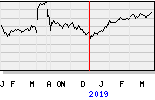
As a leader of the Platform for Accelerating the Circular Economy (PACE), Philips contributes to a special report measuring the progress made by the PACE Capital Equipment Coalition’s founding members.
•Philips is on track to fulfill its pledge that by 2020 it will take back and repurpose all the large medical systems equipment that its customers are prepared to return to it.
•Philips helps initiate a PACE project in Nigeria to create employment and sustainably manage the processing of e-waste.
Amsterdam, the Netherlands and Davos, Switzerland – At this year’s World Economic Forum Annual Meeting in Davos, Frans van Houten, CEO of Royal Philips (NYSE: PHG, AEX: PHIA), a global leader in health technology, reiterated Philips’ commitment to the circular economy and confirmed that Philips is on track to fulfill its pledge that by 2020 it will take back and repurpose all the large medical systems equipment that its customers are prepared to return to it. In 2018, after pilot projects in Italy and Greece, Philips successfully launched the roll-out of a global program to achieve its ambitious circular economy goal, together with metrics to monitor progress. Typical large medical systems equipment that Philips will take back and recycle/repurpose include the MRI and CT scanners in its health technology product and solutions portfolio.
To drive industry-wide progress towards closing the loop for large-scale equipment, Philips and eight other leading companies across multiple industry sectors co-founded the Capital Equipment Coalition. This coalition is an initiative under the Platform for Accelerating the Circular Economy (PACE) – an organization launched by WEF that Frans van Houten co-chairs alongside the head of the Global Environment Facility (GEF). At last year’s World Economic Forum, all members of the coalition pledged their company to drive specific actions in terms of preserving and recovering value from capital equipment. Today, their shared experience was published in the form of a report titled ‘Circular Value Creation – Lessons from the Capital Equipment Coalition’. In addition to highlighting the progress that has been made so far, the report outlines the business case for adopting a circular economy approach, the associated value drivers, and the organizational changes needed to embed circularity within a company’s processes and culture.
“In implementing the circular economy, we all identified a common set of requirements,” said Frans van Houten, CEO Royal Philips. “You need to start with a clear vision, offer leadership and accountability, and foster the right culture and skills both within your organization and across the value chain to unite all stakeholders in a common goal. As with any effective change process, you not only need to act, you also need to measure, which is why Philips has established a dedicated circular economy performance indicator as part of its Executive Committee dashboard.”
Electronic Waste (e-waste)
In addition to creating circular economy solutions for capital equipment, Philips is also committed to addressing the recycling of e-waste. Each year, the global economy generates around 50 million tons of e-waste, yet only around 20% is currently recycled.
Through leadership of PACE and with the involvement of the GEF, UN Environment, the Nigerian government, DELL, HP and Microsoft, Philips has been instrumental in establishing a 2-million US dollar public-private partnership project to initiate a circular e-waste system in Nigeria. The country processes around 500,000 tons of e-waste annually, and after the recovery of serviceable items that can be sold in local markets or easily recoverable materials such as metal and plastic components, much of the remainder is disposed of in landfill sites. The new e-waste project, which was announced today during a Press Conference at the WEF Annual Meeting, is expected to leverage an additional 13 million dollars in co-financing from the private sector, with the initial GEF funding allowing the Nigerian government to build the required skills, tools and governance structures for e-waste management, and pilot new e-waste collection and recycling programs.
